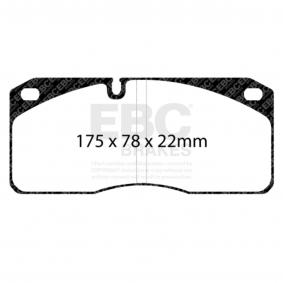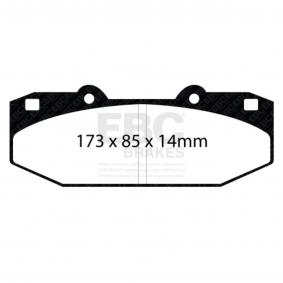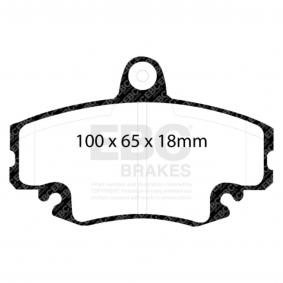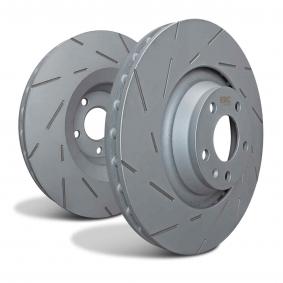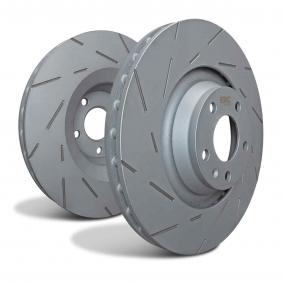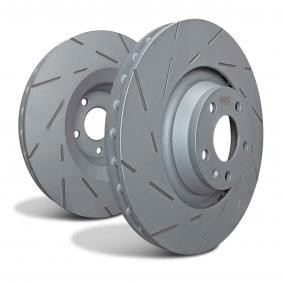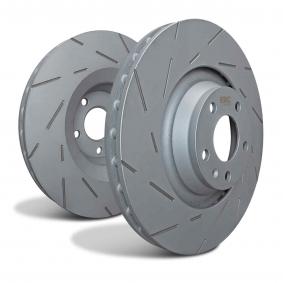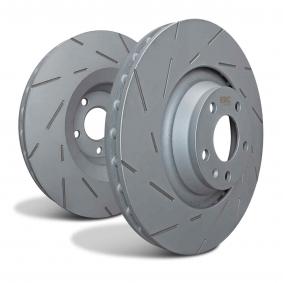PAGID
Brake Pads Shape n°1204 Compound RSL29
PAGID Brake Pads Shape n°1204 Compound RSL29
RSL29 features very good modulation and release characteristics. It is a low metallic resin bonded material containing steel and aramid fibers. The friction level of the material maintains constant at a low-medium level. Another advantage is the easy bedding in behavior.
Very popular in club racing and track days. GT cars, Touring cars and prototype endurance racing. Due to excellent modulation characteristics also often used in sprint races.
All PAGID products are made in Germany!
Length x Width : 132 mm x 71 mm
Thickness : 18 mm
Car applications, dimensions and pad schemes are supplied as a guide. Please check your assembly before ordering
Front brake pads for :
Porsche 928 S & S4 & GT (years 1985 à 1995)
Porsche 944 2.5 Turbo (years 1987 à 1991)
Porsche 964 3.3 Turbo & Turbo S (years 1988 à 1991)
Porsche 964 3.6 Carrera RS (years 1991 à 1993)
Porsche 968 3.0 Coupe Sport (years 1991 à 1995)
Porsche 993 3.6 Carrera & C4 (years 1993 à 1997)
Rear brake pads for :
Porsche 993 3.6 Turbo & Turbo GT2 (years 1995 à 1997)
Porsche 993 3.8 Carrera RS & RSR (years 1995 à 1997)
Porsche 993 4S Turbo Look (years 1996 à 1997)
Porsche 993 GT2 & RSR (years 1995 à 1997) - NB : disc Ø 380 mm
For brake calipers :
StopTech - ST40 - pad thickness : 18.0 mm
On vehicle bedding-in procedure:
Step 1 - Breaking-in
Creating a perfect contact-pattern between rotor and brake pad surface.
10 stops with mid pressure and low temperature from 150 km/h (90 MPH) to approximately 80 km/h (50 MPH).
Step 2 - Heating-up
Warm up in order to initiate some core heat in the whole brake system.
A sequence of 5 stops with medium to high pressure from 180 km/h (112 MPH) to approximately 60 km/h (40 MPH) with maximum acceleration between the stops.
Step 3 - Recovery Stops
3 to 5 stops with mid pressure from 150 km/h (90 MPH) to approximately 80 km/h (50 MPH).
RSL29 features very good modulation and release characteristics. It is a low metallic resin bonded material containing steel and aramid fibers. The friction level of the material maintains constant at a low-medium level. Another advantage is the easy bedding in behavior.
Very popular in club racing and track days. GT cars, Touring cars and prototype endurance racing. Due to excellent modulation characteristics also often used in sprint races.
All PAGID products are made in Germany!
Length x Width : 132 mm x 71 mm
Thickness : 18 mm
Car applications, dimensions and pad schemes are supplied as a guide. Please check your assembly before ordering
Front brake pads for :
Porsche 928 S & S4 & GT (years 1985 à 1995)
Porsche 944 2.5 Turbo (years 1987 à 1991)
Porsche 964 3.3 Turbo & Turbo S (years 1988 à 1991)
Porsche 964 3.6 Carrera RS (years 1991 à 1993)
Porsche 968 3.0 Coupe Sport (years 1991 à 1995)
Porsche 993 3.6 Carrera & C4 (years 1993 à 1997)
Rear brake pads for :
Porsche 993 3.6 Turbo & Turbo GT2 (years 1995 à 1997)
Porsche 993 3.8 Carrera RS & RSR (years 1995 à 1997)
Porsche 993 4S Turbo Look (years 1996 à 1997)
Porsche 993 GT2 & RSR (years 1995 à 1997) - NB : disc Ø 380 mm
For brake calipers :
StopTech - ST40 - pad thickness : 18.0 mm
On vehicle bedding-in procedure:
Step 1 - Breaking-in
Creating a perfect contact-pattern between rotor and brake pad surface.
10 stops with mid pressure and low temperature from 150 km/h (90 MPH) to approximately 80 km/h (50 MPH).
Step 2 - Heating-up
Warm up in order to initiate some core heat in the whole brake system.
A sequence of 5 stops with medium to high pressure from 180 km/h (112 MPH) to approximately 60 km/h (40 MPH) with maximum acceleration between the stops.
Step 3 - Recovery Stops
3 to 5 stops with mid pressure from 150 km/h (90 MPH) to approximately 80 km/h (50 MPH).
Ref.: PFPA1204RSL29
See all the Brake pads PAGIDSee all PAGID products| Homologation | Non homologuée route |
|---|---|
| Oreca Reference | PFPA1204RSL29 |
| Manufacturer's reference | E120429010 |
| Brand | PAGID |


